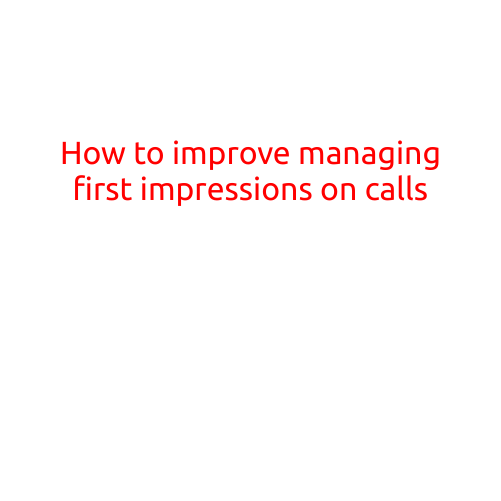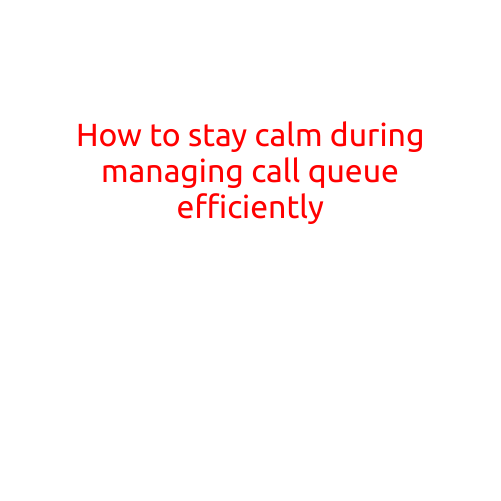
How to Adapt to Managing Stress in Call Centers
Working in a call center can be a stressful and demanding job. The fast-paced environment, constant distractions, and high-pressure targets can take a toll on your mental and physical well-being. However, there are ways to manage stress and maintain a healthy work-life balance as a call center agent.
Recognize the Signs of Stress
Before you can manage stress, you need to recognize the signs. Some common symptoms of stress include:
- Increased anxiety and irritability
- Difficulty sleeping or insomnia
- Fatigue and lack of motivation
- Physical symptoms like headaches, stomach problems, and muscle tension
- Difficulty concentrating and making mistakes
- Feeling overwhelmed and hopeless
Identify Triggers
Understanding what triggers your stress is crucial in developing effective coping mechanisms. Common triggers in call centers include:
- Long hold times and technology issues
- Difficult customers and conflict resolution
- High volume of calls and tight quotas
- Lack of training and support
- Poor work-life balance and long hours
Develop Coping Mechanisms
Adapting to managing stress in a call center requires developing healthy coping mechanisms. Here are some strategies to help you manage stress:
- Take Breaks: Take regular breaks to stretch, move around, and reduce fatigue. Use this time to meditate, practice deep breathing, or practice a quick exercise routine.
- Communicate with Your Team: Share your stress with your colleagues and supervisor. Don’t be afraid to ask for help or support when you need it.
- Prioritize Self-Care: Make time for activities that bring you joy and relaxation, such as reading, listening to music, or spending time with loved ones.
- Reframe Negative Thoughts: Challenge negative thoughts and reframe them in a positive light. Focus on the things you can control and the success you’ve had in your role.
- Stay Organized: Use tools and systems to stay organized and on top of your tasks. This can help reduce stress and anxiety.
- Seek Professional Help: If you’re experiencing chronic stress and it’s affecting your daily life, consider seeking help from a mental health professional.
Tips for Managing Stress in Call Centers
Here are some additional tips to help you manage stress in a call center:
- Set boundaries: Establish clear boundaries with customers to protect your time and energy.
- Focus on solutions: Instead of dwelling on problems, focus on finding solutions and take action to resolve issues.
- Celebrate small wins: Acknowledge and celebrate your small victories to boost morale and motivation.
- Practice gratitude: Reflect on the things you’re grateful for, no matter how small they may seem.
- Stay flexible: Be open to changes and adapt to new situations and challenges.
Conclusion
Managing stress is essential for call center agents to maintain their well-being and perform at their best. By recognizing the signs of stress, identifying triggers, and developing healthy coping mechanisms, you can adapt to the demands of a call center job. Remember to prioritize self-care, communicate with your team, and seek help when needed. With the right strategies and mindset, you can thrive in a high-pressure call center environment.





